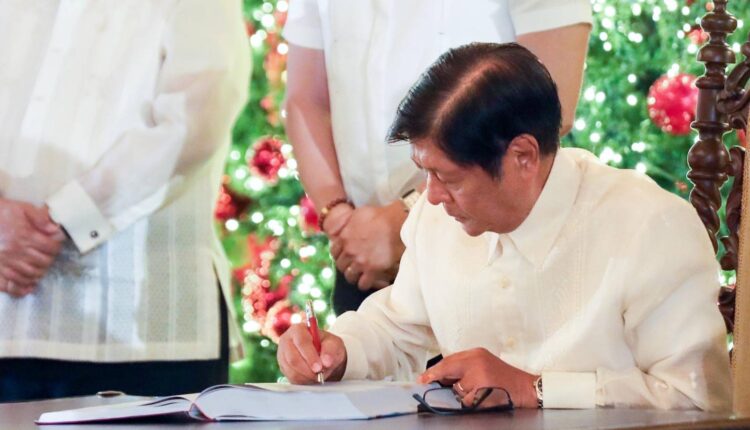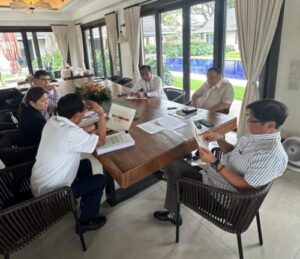PBBM SIGNS ‘MCB,’ FINALLY
P194 billion of suspected ‘pork’ removed

PRESIDENT Ferdinand Marcos Jr. on Monday, December 30, finally signed the 2025 national budget (general appropriations act, GAA) that critics denounced as the ‘most corrupt budget’ (MCB) in the nation’s history.
In a statement posted by the Presidential Communications Office (PCO), Department of Budget and Management (DBM) Secretary Amenah Pangandaman, stressed the “constitutionality” of the P6.326 trillion national expenditure for next year, P194 billion less than the P6.352 trillion budget that was approved by the Bicameral Conference Committee of both chambers of Congress last December 11.
Pangandaman said the slashed amount came from the line items allocated to the Department of Public Works and Highways (DPWH) amounting to P26.05 billion and, P168.240 billion from the ‘Unprogrammed Appropriations’ account.
Pangandaman said the allocations were deemed “inconsistent with the administration’s priority programs.”
The budget originally approved for submission to the President by the Bicameral Committee generated so much criticism over accusation the allocations would favor lawmakers as the country holds its midterm elections next year that it forced the Chief Executive to delay its signing last December 20.
In particular, the public was incensed after the Bicam, headed by Senate President Francis Escudero and the House, headed by Speaker Ferdinand Martin Romualdez, axed the proposed P70 billion subsidy for PhilHealth, the country’s national health insurance provider and increasing by over P200 billion the budget of the DPWH, despite the agency not asking for further additional allocation.
DPWH projects have always been seen as a source of graft among lawmakers as most of them are also the ones to “recommend” the contractors who would implement infrastructure projects in their districts.

While increasing allocation on programs where lawmakers can have a say on their disbursement, the Bicam also decided to starve the education sector of funds for state scholars and the operation and maintenance of state universities and colleges (SUCs).
Under the Constitution, the education sector must have the lion’s share in budget allocation.
In his speech during the signing of the GAA, the President mentioned calls to veto the entire budget and revert to a reenacted one.
“However, this is not an option we can afford,” he said.
To remove the stigma of approving the most corrupt budget and assure critics, President Marcos said the disbursement and implementation of certain programs would undergo ‘conditional implementation’ “to make sure the funds that will be used are authorized and with specific purpose.”
He added the Executive Branch would also require cash programming, adherence to budget rules, and approvals of concerned offices, for those which received increased appropriations and for new budgetary items.
“This way we guarantee that these programs and projects are implementable and will redound to the benefit of our people,” the President said.



Comments are closed.